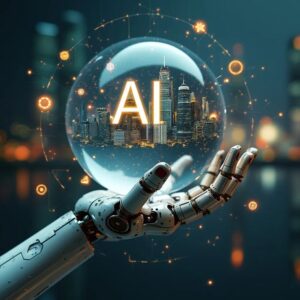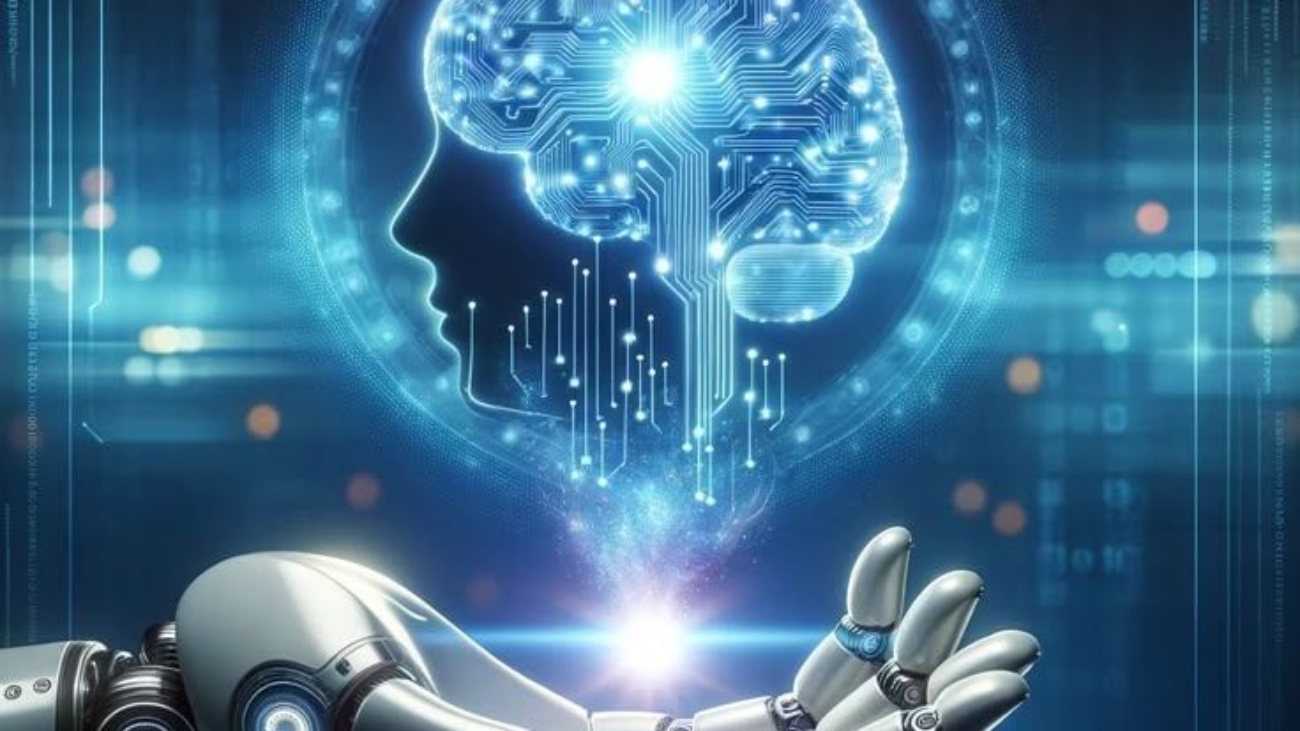Artificial Intelligence (AI) was once a technology limited to research labs, big tech companies, and governments. However, over the past few years, AI has become more accessible to businesses, individuals, and startups worldwide. This “democratization of AI” is revolutionizing industries, unlocking new opportunities, and empowering people without technical expertise to leverage AI for innovation and problem-solving.
What is AI Democratization?
AI democratization refers to making AI tools, technologies, and capabilities accessible to a wider audience—beyond data scientists and large enterprises. The goal is to reduce barriers to entry so that anyone, regardless of their technical background, can use AI to solve problems, improve efficiency, and innovate.
Previously, AI development required specialized knowledge in machine learning, coding, and data science, along with expensive computational resources. But now, thanks to no-code platforms, open-source AI models, and cloud-based AI services, even small businesses and individuals can leverage AI without deep technical expertise.

Several technological and market trends are fuelling the widespread accessibility of AI:
- Open-Source AI Models & Frameworks
AI frameworks and tools have become open-source, allowing developers worldwide to experiment, improve, and share AI capabilities. Some of the most popular open-source AI libraries include:
- TensorFlow (by Google) – A widely used deep-learning framework.
- Py Torch (by Meta) – A flexible machine-learning library favoured by researchers.
- Hugging Face Transformers – An open-source library for Natural Language Processing (NLP) models.
- OpenAI’s GPT models – Used for text generation, chatbots, and creative AI applications.
These resources enable developers—even those without advanced AI knowledge—to implement AI solutions quickly.
- No-Code & Low-Code AI Platforms
No-code and low-code AI platforms enable users to create AI models without writing complex code. These platforms simplify AI implementation with drag-and-drop interfaces and automated workflows. Some popular platforms include:
- Google Auto ML – Enables businesses to build AI models without coding.
- Microsoft AI Builder – Provides AI solutions integrated with Power Apps.
- Teachable Machine (by Google) – Allows users to train machine-learning models without programming.
These tools are bridging the gap between AI experts and non-technical users.
- Cloud-Based AI Services
Cloud providers like AWS, Microsoft Azure, and Google Cloud offer pre-trained AI models and APIs that businesses can integrate into their workflows without setting up complex AI infrastructure. Some examples include:
- Amazon Rekognition (for image and facial recognition)
- Google Cloud AI (for natural language processing and translation)
- IBM Watson AI (for business intelligence and automation)
By offering AI-as-a-Service, cloud providers reduce the cost and complexity of AI adoption.
- AI-Powered Development Tools
AI is even assisting developers with code generation, debugging, and automation. Popular AI-powered coding tools include:
- GitHub Copilot – AI-powered code suggestions for programmers.
- ChatGPT for Developers – Helps generate code, debug errors, and improve efficiency.
- Auto ML – Enables developers to create machine-learning models with minimal effort.
This allows software developers with limited AI expertise to build smart applications efficiently.
- Advancements in AI Hardware
AI computation requires powerful processors, but the development of specialized AI hardware—such as Google’s TPU (Tensor Processing Unit), NVIDIA GPUs, and Apple’s Neural Engine—has made AI models more efficient and accessible.
- AI Education & Awareness
AI education has become more accessible through online platforms such as:
- Coursera (AI for Everyone by Andrew Ng)
- Udacity (AI and Machine Learning Nanodegrees)
- Khan Academy (AI & Coding Courses)
As more people learn about AI, they gain the skills needed to leverage AI for their businesses, careers, and personal projects.
The widespread accessibility of AI is transforming various industries, making it easier for businesses to innovate and compete.
- Small Businesses & Startups
- AI-powered marketing automation and customer insights.
- Chatbots for customer support (e.g., ChatGPT, Drift).
- AI-generated content and SEO tools (e.g., Jasper AI, Copy.ai).
- Healthcare
- AI-assisted medical diagnostics (e.g., Google’s AI detecting diabetic retinopathy).
- Personalized medicine and AI-driven drug discovery.
- AI-powered virtual health assistants and chatbots.
- Education
- AI-driven personalized learning platforms (e.g., Duolingo, Khan Academy AI Tutor).
- Automated grading and plagiarism detection.
- AI tutors and chatbots for student support.
- Software Development
- AI-powered code completion (e.g., GitHub Copilot).
- Automated debugging and software testing.
- AI-driven software documentation and workflow optimization.
- Finance & Banking
- AI-based fraud detection and risk assessment.
- Robo-advisors for investment decisions.
- AI-powered customer support and automation.
Despite the benefits, democratizing AI presents several ethical challenges:
- Bias in AI Models
AI models can reflect biases in their training data, leading to unfair or discriminatory outcomes. Organizations must focus on ethical AI development and bias detection techniques.
- Data Privacy & Security
As AI becomes more accessible, concerns about data privacy, surveillance, and cyber threats increase. Governments and organizations must implement stronger data protection policies.
- Job Displacement & Workforce Transformation
AI automation may replace certain jobs, requiring reskilling programs to help workers transition to AI-driven roles.
- Misuse of AI (Deepfakes, Misinformation, & Cyber Threats)
Easily accessible AI can be misused for deepfake videos, misinformation campaigns, and cyber threats. Strong AI governance policies are needed to prevent misuse.
The Future of AI Democratization
The AI revolution is just beginning. In the coming years, we can expect:
✅ More user-friendly AI tools for non-programmers.
✅ AI-powered assistants for every industry.
✅ Stricter AI regulations to ensure responsible use.
✅ Increased AI literacy and education for all.
The democratization of AI is not just about making AI available—it’s about making AI beneficial, fair, and ethical for everyone.
Conclusion
AI democratization is transforming how individuals and businesses leverage artificial intelligence. As AI becomes more accessible, the focus should be on responsible AI use, ethical considerations, and equitable distribution of AI benefits.
The future of AI is in your hands—whether you’re an entrepreneur, a developer, or just someone curious about AI, now is the best time to explore its potential.

